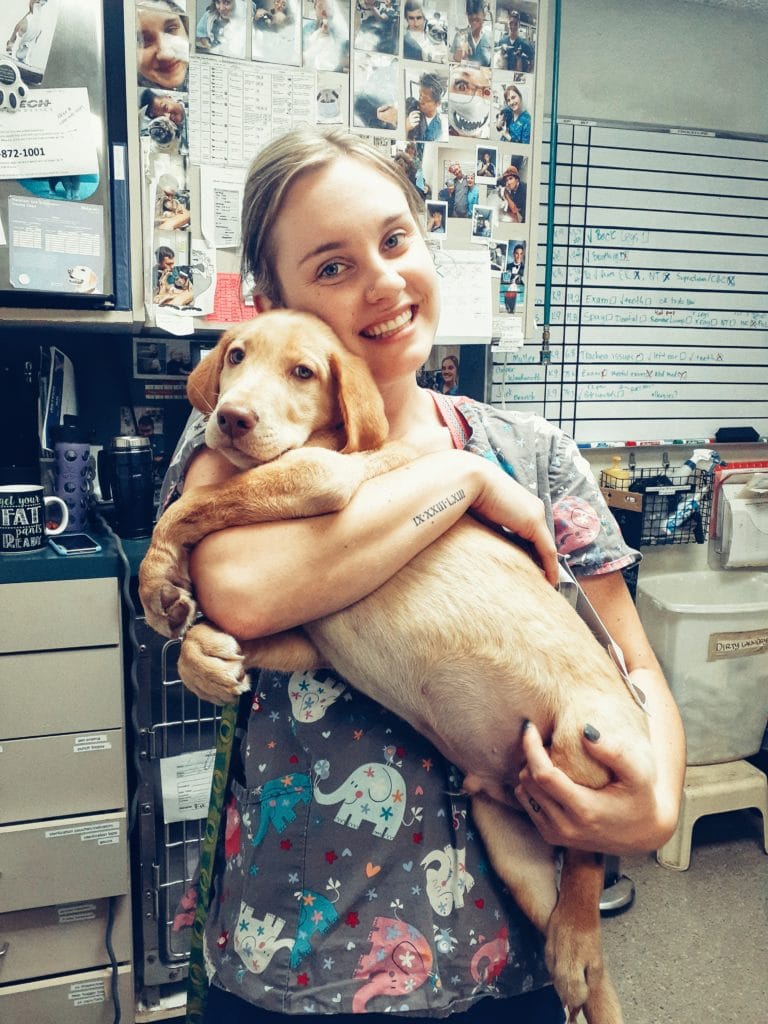The Veterinary Mental Health Crisis part 2 of 2: Where do we go from here?
Originally posted by Dr. Bill Wagner with Associated Veterinary Partners | Reposted with permission by Dr. Wagner
If you are having thoughts of suicide, please contact the National Suicide Prevention Lifeline immediately at 1-800-273-8255 (TALK). No matter what you’re going through, your life has incredible value and the veterinary community loves you and is here for you.

In our last blog post we discussed the root causes of the veterinary mental health crisis. This week we are going to dive into the steps that we can take to ensure that the mental health and wellbeing of the veterinary workforce is getting the attention and care that it deserves.
Mentality shift in veterinary medicine: We need to tackle stigma and raise awareness around mental health concerns in veterinary healthcare workers. The first step towards solving a problem is admitting there is one. We need to equip vets with the tools and training to recognize symptoms of depression in themselves and their peers before it reaches the point of crisis. Vets who need time and help to work through crisis deserve the support from their peers and their employers. Organizations like Not One More Vet are already working tirelessly to tackle these issues, but there’s still much work to be done.
Address work-life balance: Shifting the perception of healthy work-life balance needs start all the way back in veterinary medical school. Vet med students need to be taught healthy boundaries. During my clinical year in vet med school, I was frequently working 80-100+ hours per week on rotations alongside clinicians (interns all the way up to attendings) working similar hours. Normalizing healthy work-life balance in clinical practice starts by addressing unhealthy work-life balance in academia. What is learned in school shapes the norms in the profession after school.
Fight for more affordable veterinary medical education: Excessive debt is bad for mental health. Educational debt has skyrocketed in the veterinary profession and most new graduates enter the profession with an extreme debt-to-salary ratio. Accreditation for veterinary medical schools should include cost control measures including limits on administrative costs. The veterinary profession also needs to focus on fighting to restore the reduced state funding for many veterinary medical schools.
Provide better mental health resources: Veterinary employers and professional bodies need to ensure that veterinarians have access to affordable mental healthcare whenever they need it. Employee Assistance Plans (EAPs) can be a useful and relatively affordable tool for employers to provide access to counseling services to assist employees through individual crises and refer them to ongoing counseling or other mental health services if necessary.
All veterinary practices should have proactive policies for handling abusive clients and cyberbullying: Veterinary practices shouldn’t be trying to figure out how to handle a cyberbullying incident on the fly.
Educate veterinary healthcare workers on ways to promote personal mental wellness: Mental healthcare shouldn’t just be reactive. Just like preventative medicine is important for our pets in stopping problems before they start, taking a proactive approach to mental health is also important. Exercise, meditation/mindfulness, and making sure staff have enough vacation time and can utilize it without pushback or shaming can all help.
Educate the public on how their words and actions impact veterinary healthcare workers: Kind words have power, as do hurtful ones. I have cards up on my refrigerator from clients who wrote kind words to me about the care of their pets. I can also remember every one of the times that a client has yelled at me and how it took me hours, sometimes days to feel like I wasn’t a crummy vet again even though I rationally knew they weren’t right. Words are powerful and we should focus on using the power of those words for good.

